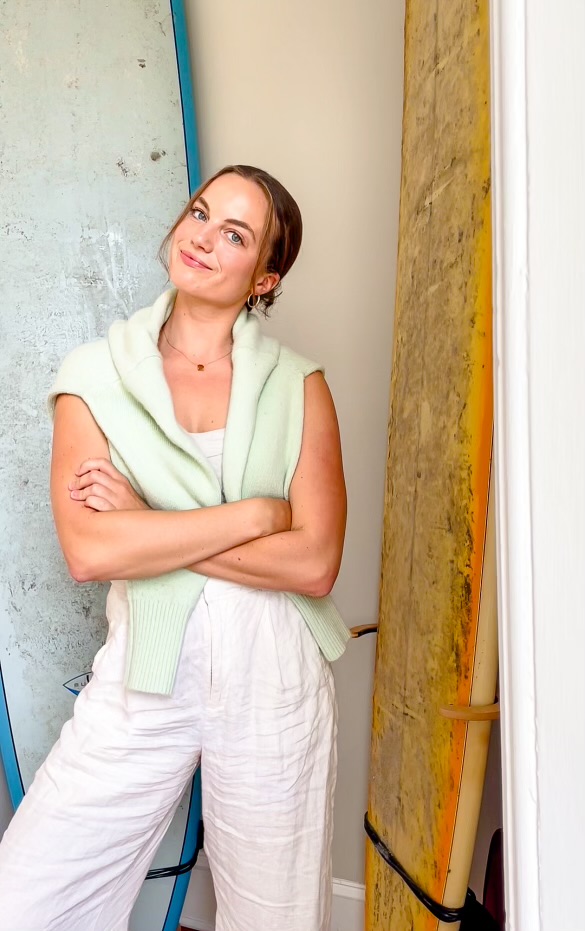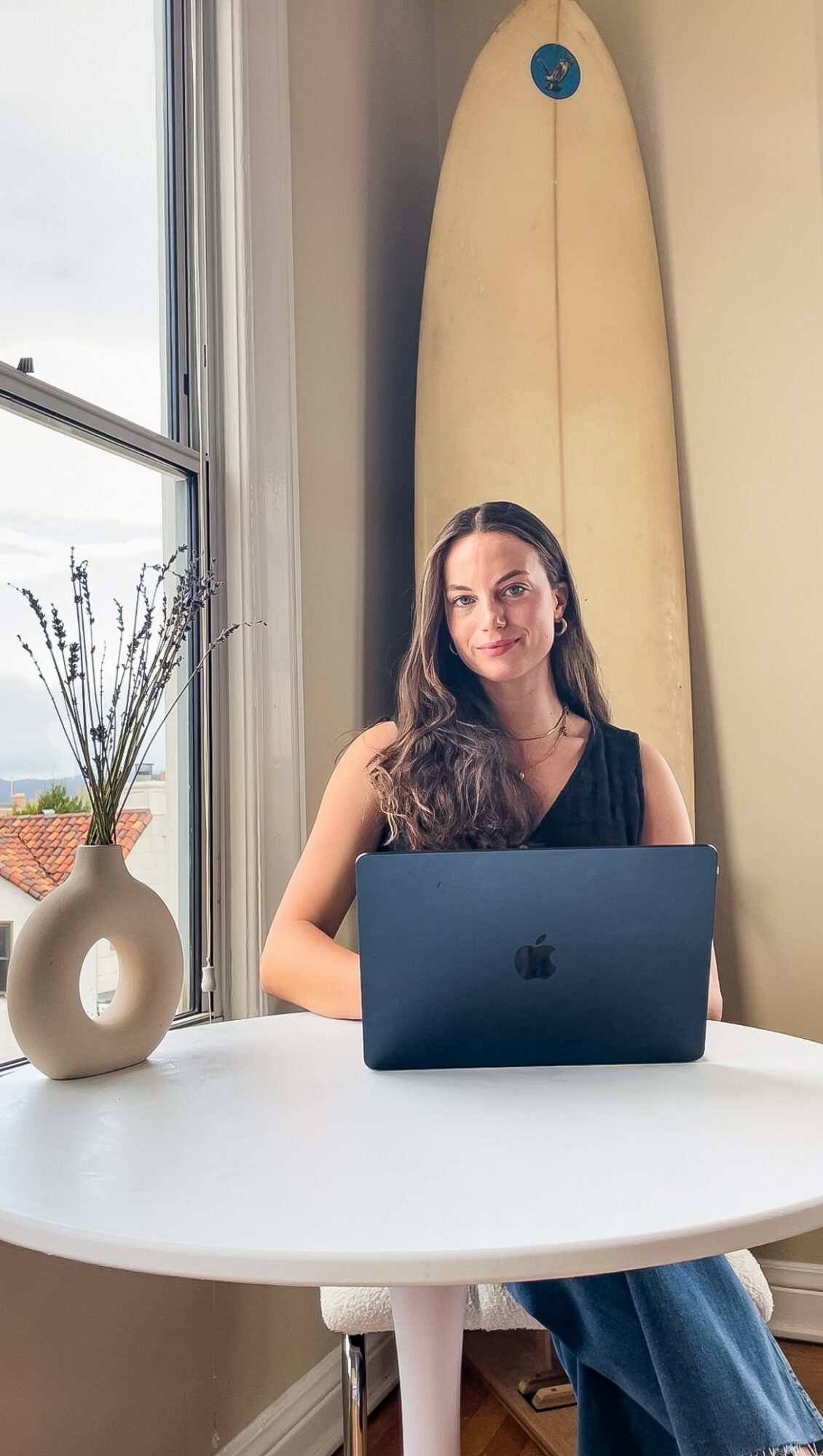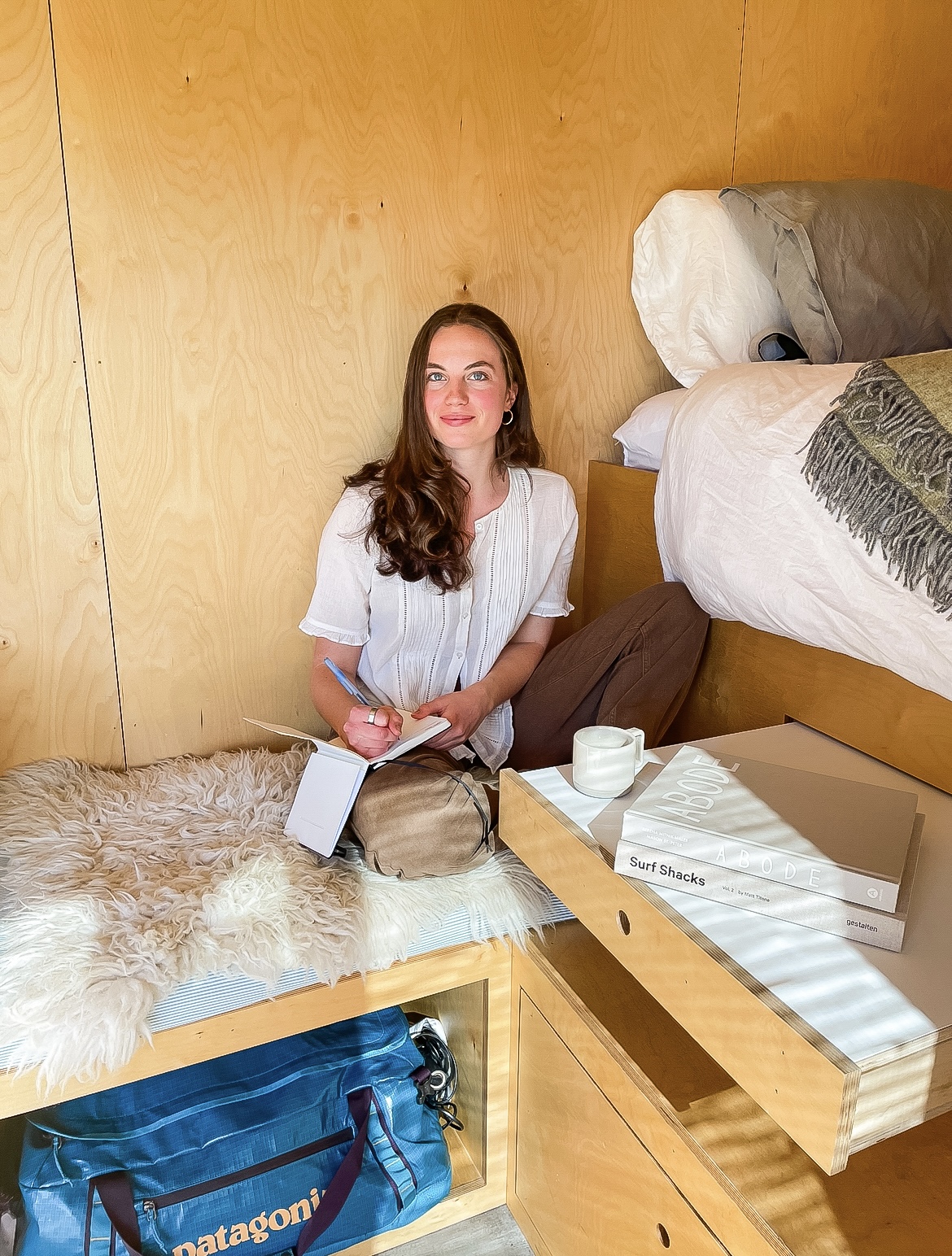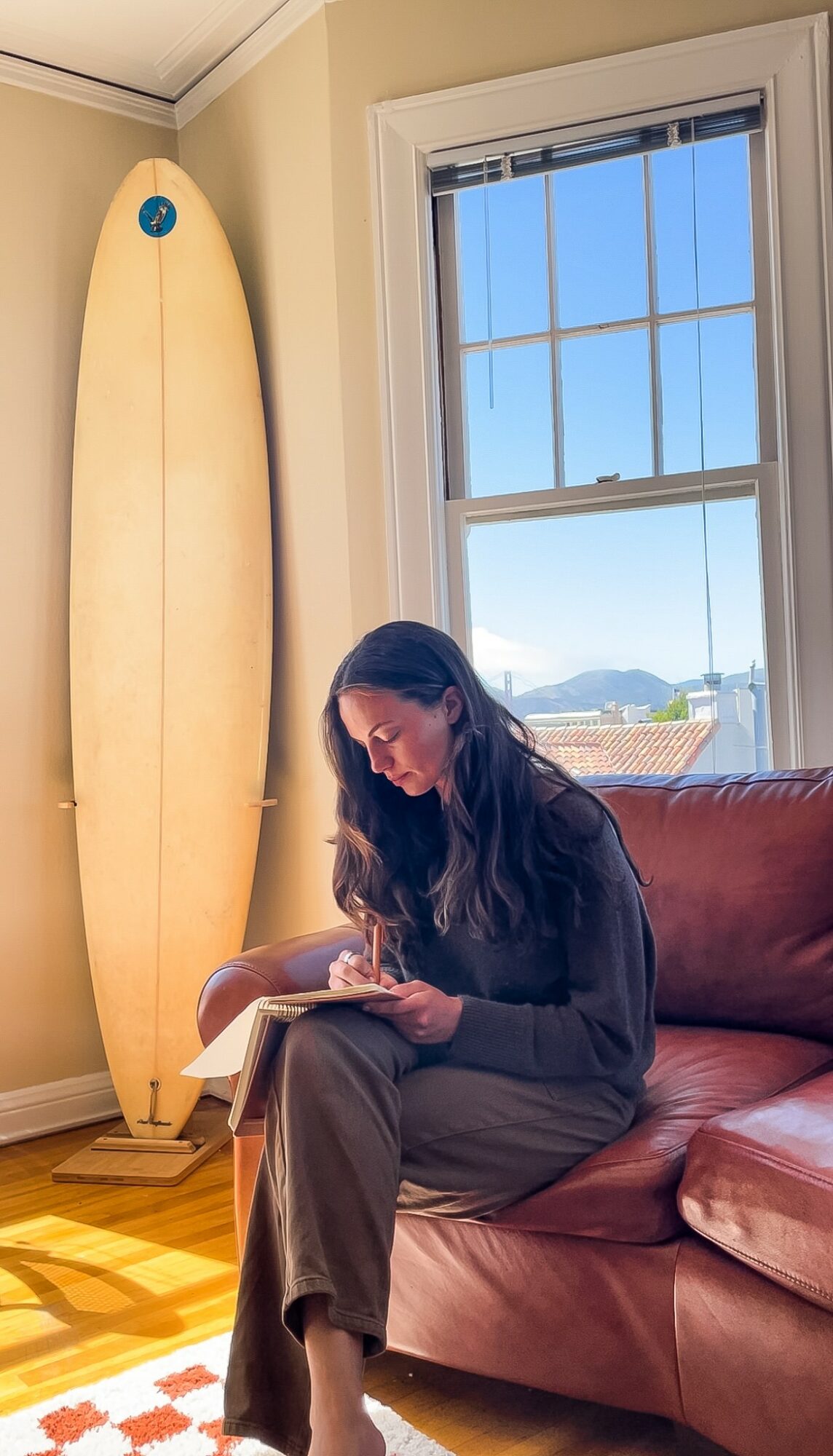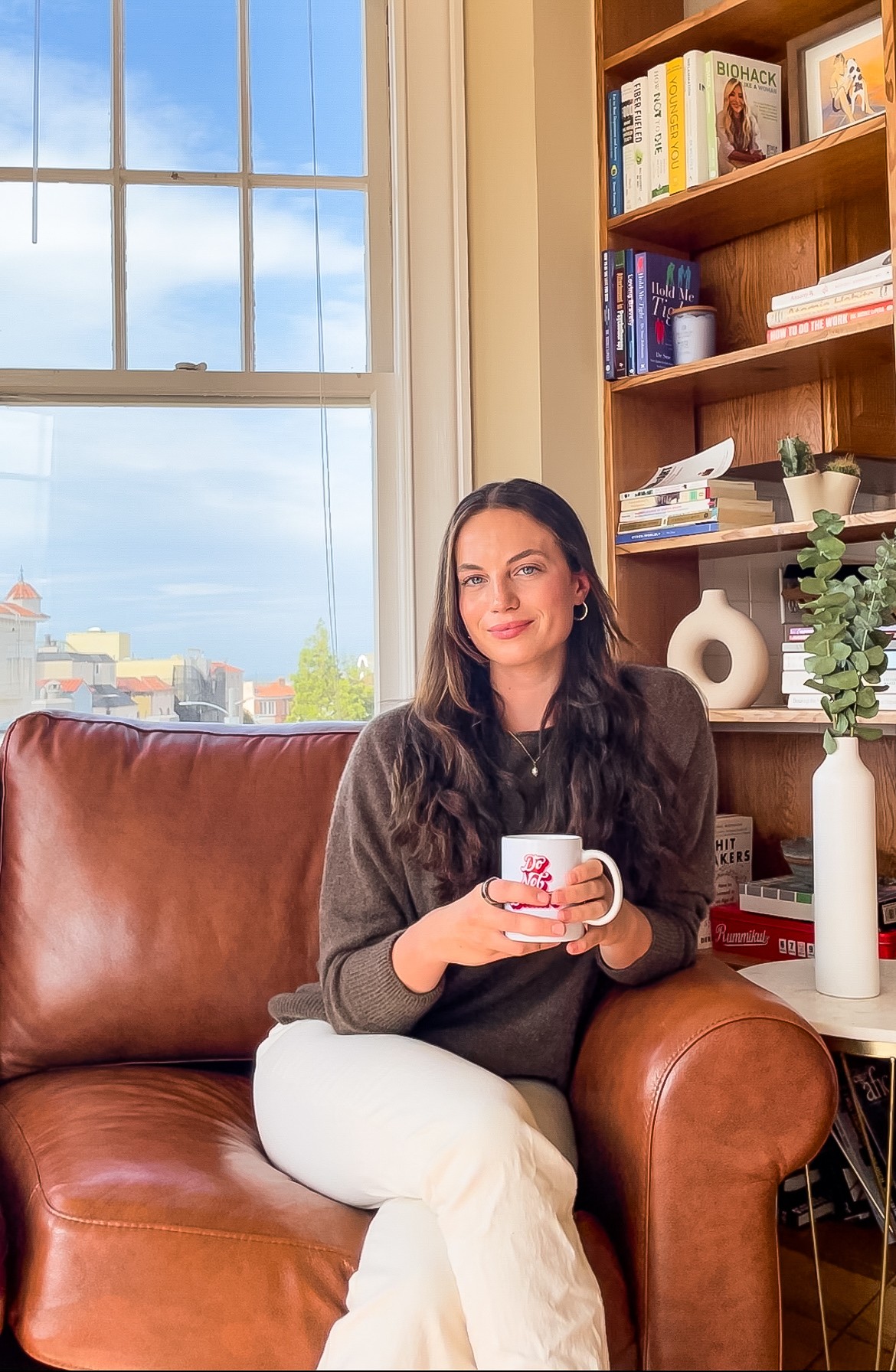 Today we’d like to introduce you to Lyla Connolly
Today we’d like to introduce you to Lyla Connolly
Hi Lyla, so excited to have you with us today. What can you tell us about your story?
My story began on the other side of the therapist’s couch.
During my sophomore year at Brown University, I had finally had enough. I was sick of my restrictive, disordered eating. I was exhausted from living in “fight/flight” mode. And no matter how much I meditated, journaled, and exercised, I couldn’t stop the anxiety spirals from occurring more and more frequently. I was gripping life tightly, like the Type A anxious overachiever that I was. Desperate, I started seeing a therapist who I would work with for the next five years.
In therapy, I realized that my restrictive relationship to food, chronic worry, and racing thoughts were surface-level red flags, signaling a deeper alarm that lived in my body. At the root of this alarm were stuck emotions and unprocessed traumas, on the one hand, and chronic gut health issues stemming from travels abroad, on the other hand. My body did not feel like a safe place to be, so I coped by living in my head.
I found relief through a combination of therapy and functional medicine. My functional medicine doctor helped me heal the parasitic infections that were not only damaging my gut health, but also amplifying my anxiety due to the gut-brain connection. My therapist helped me slow down, feel, and process the emotions that I had held in my body for so long.
Here’s what happened: When I started feeling the emotions that I had avoided for years, the alarm in my body quieted. When the alarm in my body quieted, the anxiety in my mind did too. And, after all those years, my disordered eating finally lost its “job” of trying to protect me from the alarm in my body and the anxiety in my mind. It turns out my overthinking and hyper-controlling tendencies were actually signs of under-feeling.
As a result of this mind-body approach, I’m in full recovery from my disordered eating, my anxiety has decreased by about 80%, and my gut health is thriving.
Inspired by this holistic approach to mental health, I went on to get my Master’s in Clinical Mental Health Counseling from Northwestern University as well as my certification as an Integrative Health Practitioner (IHP). Now, as a therapist, I take a depth-oriented approach to mental health that attends to both the physiological and psychological roots of client’s presenting concerns.
Would you say it’s been a smooth road, and if not what are some of the biggest challenges you’ve faced along the way?
As a therapist, I have transformed my pain into my purpose, and now I get to help others do the same. I can’t think of a more rewarding career, but it hasn’t been a smooth road. There are two main challenges that early career therapists, like myself, face.
First, it’s hard to find a therapy practice that provides fair compensation for associate therapists. When I interviewed at private practices in California, several potential employers offered to pay me an extremely low salary while encouraging “a second job, maybe as a barista or nanny.” When I heard this, I felt rage. I had just gotten a degree to be a therapist, and I wanted to be a therapist, full-time! The industry standard of overworking and underpaying associate therapists is unacceptable. I would encourage associate therapists to not settle for jobs that set them up for burnout. I feel so grateful that I landed at Her Space Therapy LA, where I feel cared for as much as I care for my clients. This type of support is essential for longevity and success in this career!
Second, many associate therapists in private practices are expected to find their own clients. The problem: we learn zero marketing skills in “therapist school!” So, when it comes time to reach our ideal clients, we go into “freeze” mode. This is another industry standard that I was unwilling to settle for. Throughout graduate school, I self-educated on the marketing and business side of therapy. I spent two years posting content that spoke to my ideal clients, namely, ambitious women with high functioning anxiety. As I shared myself as a relatable, human therapist, my Instagram page @lylaconnollytherapy grew to over 20K followers. Now, I am connecting with my dream clients and filling my caseload 2-3x faster than other therapists told me possible. I would highly recommend that other interns and associate therapists start their Instagram page before they actually need clients!
As you know, we’re big fans of you and your work. For our readers who might not be as familiar what can you tell them about what you do?
I am an associate therapist at Her Space Therapy LA, a private practice for women by women. My areas of expertise include high functioning anxiety, perfectionism, disordered eating, attachment trauma, and romantic relationships. Many of my clients are Gen-Z and Millennial women who are high achieving and put together on the outside, but feel anxious and disconnected from themselves on the inside. I help my clients reclaim their authenticity and restore balance to their minds, nervous systems, and relationships.
Unlike traditional talk therapy, I take a holistic, depth-oriented approach that tends to both the mind and the body. I believe becoming aware of negative, automatic thinking is just scratching the surface. These automatic thoughts usually stem from something deeper, like a core wound from childhood that has shaped a client’s subconscious “programming.” Through a psychodynamic approach, I help clients connect the dots between past and present, grieve what they needed but did not get as children, and then learn how to give themselves that very thing, rewiring their neural pathways in the process. At the same time, I bring in somatic techniques to help clients reconnect with the sensations in their bodies and work with their nervous system responses. Overtime, this helps soften their inner alarms. My approach is a great fit for clients who are tired of just trying to change their thoughts and want to dive deeper to uncover what’s at the root.
If we knew you growing up, how would we have described you?
Growing up, I had two competing parts of me. At my core, I was an intuitive, sensitive kid with a little bit of a wild side. I preferred talking with adults than kids my own age, because I craved meaningful conversation. I felt most connected to myself surfing, traveling, and exploring different cultures.
Sadly, this intuitive, free-spirited part of me dimmed throughout middle school and high school. I spent most of my childhood in an academically competitive suburb of Boston, not far from Harvard and MIT. Though my parents were creatives – a singer songwriter and a chef – who encouraged me to follow my passions, my town pushed me to please, perfect, and perform. So I did. I took Advanced Placement classes. I played on varsity sports teams. I got into an Ivy League school. Though these achievements fulfilled external expectations, they distanced me from my inner world, and my mental health suffered.
Only now am I learning to hold the multiple parts of me: the intuitive kid, the anxious overachiever, the lifelong surfer, the perfectionist, and the sensitive soul. These parts of me are no longer competing, but rather woven together to form a complex, whole human.
Pricing:
- Individual 50-Minute Session: $165
Contact Info:
- Website: https://herspacela.com/about-lyla
- Instagram: https://www.instagram.com/lylaconnollytherapy/
